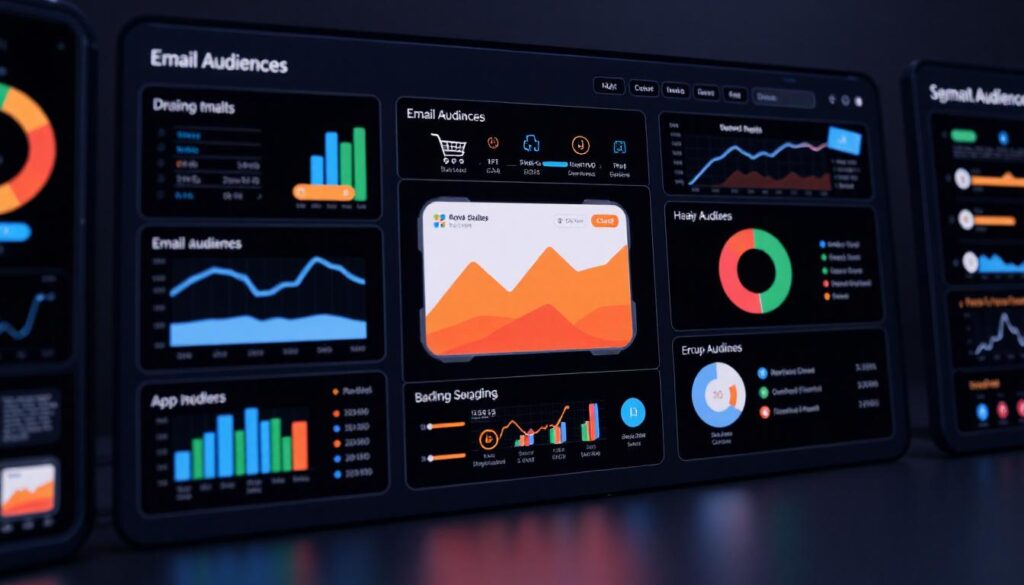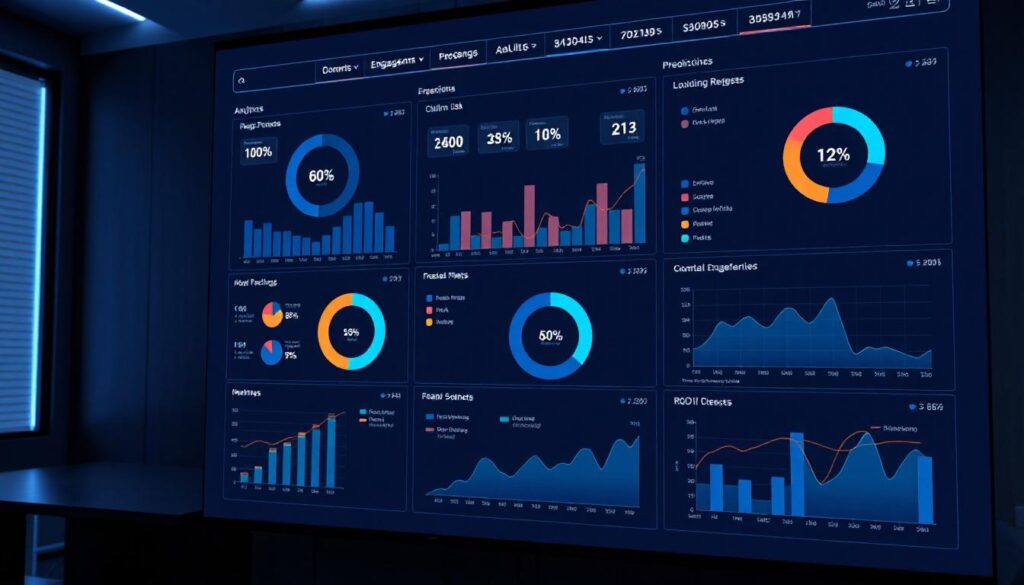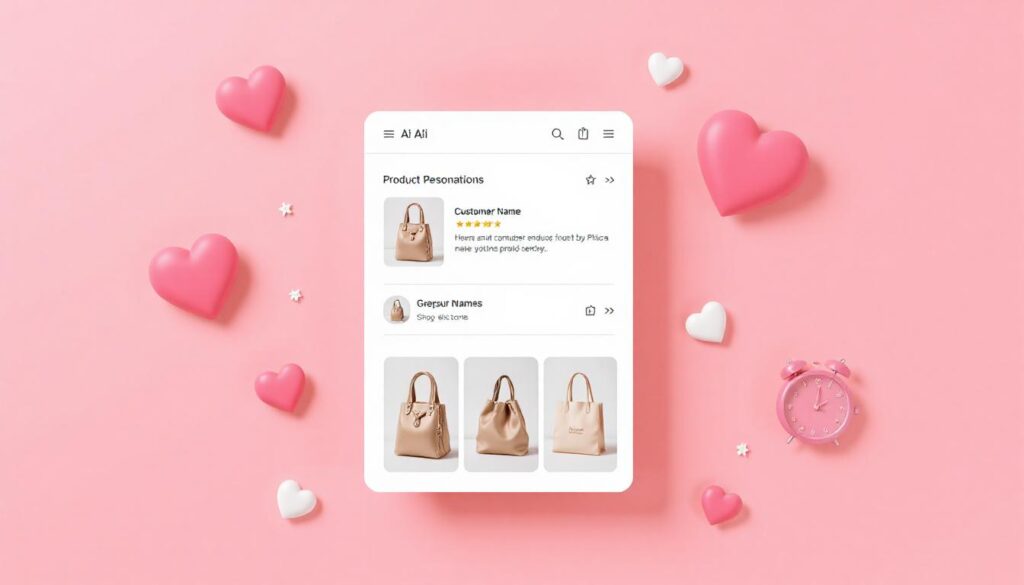Introduction
Email marketing remains one of the most cost-effective and conversion-rich digital marketing channels. But as inboxes grow increasingly crowded, cutting through the noise has become harder than ever. That’s where Artificial Intelligence (AI) steps in—not just as a futuristic concept, but as a practical, results-driven tool that marketers are leveraging today to personalize campaigns, automate workflows, and maximize impact.
Whether you’re a small business owner, an eCommerce brand, or a digital marketing specialist, integrating AI into your email strategy can give you a significant competitive edge. Let’s explore exactly how AI is revolutionizing email marketing—and how you can take advantage of it.
Leveraging AI to personalize email content is a key strategy highlighted in Why AI in Social Media Marketing is a Game Changer, which complements email marketing improvements.

Smarter Audience Segmentation
Effective email marketing starts with knowing your audience. Traditional segmentation methods like sorting subscribers by age, gender, or geography are helpful—but limited. AI takes segmentation to a new level by analyzing massive volumes of behavioral data to create micro-segments based on nuanced factors.
With AI, you can segment audiences based on:
- Email open and click-through rates over time: Track the evolving preferences of your audience to understand who’s engaged and who’s not.
- Browsing and shopping behavior on your site: AI helps build detailed profiles, tracking products viewed and categories frequently visited.
- Recency, frequency, and monetary value (RFM) of purchases: Pinpoint loyal customers, as well as those at risk of churn, to send tailored messages.
- Predicted lifetime value and churn probability: AI helps forecast the future behavior of subscribers, giving you valuable insights into their long-term potential.
These insights allow you to craft highly targeted campaigns that resonate deeply with each segment, increasing engagement and conversions. The ability of AI to generate compelling and context-aware messages aligns with concepts explained in The Science of AI-Powered Text Generation, enhancing email engagement.

Hyper-Personalization at Scale
Modern consumers expect brands to understand them. AI enables this through hyper-personalization, going far beyond simply inserting a first name into the subject line. By processing historical data, preferences, and real-time behaviors, AI can generate dynamic, personalized content at scale.
Some ways AI enhances personalization:
- Recommending products based on recent browsing history: Imagine sending a personalized email offering products based on what a customer was recently viewing, leading to more relevant suggestions.
- Displaying content tailored to previous purchases or email engagement: If a customer previously purchased fitness equipment, follow-up emails can offer accessories or complementary products, increasing the likelihood of additional sales.
- Sending emails at the precise time each individual is most likely to engage: AI analyzes past engagement to pinpoint optimal send times, maximizing open rates and minimizing unsubscribes.
For example, if a customer frequently browses noise-canceling headphones, AI can include a product carousel of top-rated options in the next email they receive. This level of relevance leads to higher open rates, click-throughs, and ultimately more conversions.
For businesses looking to scale their email marketing efforts efficiently, insights from How AI-Powered Tools Can Help You Scale Your Business Faster offer valuable guidance.

Optimized Subject Lines and Content with NLP
You only get one shot at a first impression, and in email marketing, that comes down to your subject line. It’s the gateway to your message, and if it doesn’t resonate instantly, your email might end up unopened or worse—deleted. This is where Natural Language Processing (NLP), a branch of AI, becomes a game-changer. NLP empowers marketers to craft subject lines and content that aren’t just catchy—they’re backed by data, psychology, and real-time insights.
Here’s how NLP tools elevate your content strategy:
- A/B testing at scale: Instead of testing two or three variations manually, NLP can help generate and test hundreds or even thousands of subject lines automatically, analyzing which combinations yield the highest open rates and engagement.
- Tone and sentiment analysis: NLP ensures your subject lines strike the right emotional chord. Whether you’re aiming for excitement, urgency, trust, or empathy, the AI can analyze tone and adjust language to better align with your audience’s emotional triggers.
- Content enhancement and suggestions: These tools don’t just spot problems—they offer solutions. Based on historical campaign data and audience response patterns, NLP can recommend improvements for better clarity, readability, and impact.
An AI-powered tool might suggest replacing a generic subject like “Sale Ends Soon!” with a more personalized and engaging one like “Final Hours to Save on Your Favorites”, boosting open rates. Understanding how large language models power smart email automation can be deepened by reading How Does Large Language Models Work.

Automated Workflow Optimization
Email marketing is no longer limited to scheduled blasts. Today, it’s about real-time interactions, lifecycle journeys, and context-aware automations. AI elevates automation by making workflows adaptive and responsive to user behavior.
Traditional workflows are static: if this, then that. But AI-driven workflows evolve:
- Send abandoned cart emails only when the customer is most likely to convert.
- Adjust email frequency based on engagement trends to avoid unsubscribes.
- Trigger personalized follow-ups based on in-email behavior.
These intelligent automations not only save marketers time but also enhance customer experience by delivering the right message at the right moment. The importance of context and emotional intelligence in crafting email campaigns is further discussed in AI is Becoming More Context-Aware and Emotionally Intelligent, which applies directly to email marketing success.

Actionable Campaign Analytics and Predictive Insights
Analyzing campaign performance is crucial—but AI makes it smarter and faster. Rather than wading through spreadsheets, AI tools provide actionable insights and predictive modeling to fine-tune your future campaigns.
Here’s what AI-powered analytics can offer:
- Predictive engagement: Anticipate how subscribers will respond to future content.
- Churn forecasting: Identify subscribers at risk of disengaging, and target them with re-engagement strategies.
- Design optimization: Use heatmaps to see where users click or drop off within your emails.
- ROI forecasting: Understand which campaigns are likely to yield the highest return.
This data-driven approach empowers marketers to make informed decisions—not just reactive ones—and continuously improve performance.

Conclusion
Artificial Intelligence isn’t here to replace marketers—it’s here to empower them to do more with less. Rather than removing the human element from marketing, AI enhances it by providing smarter tools, deeper insights, and automation capabilities that free up time for creativity and strategic thinking. Whether it’s smarter segmentation, real-time personalization, or enhanced analytics, AI equips you with everything you need to craft high-performing email campaigns that resonate with your audience and drive real results.
By leveraging the power of AI, you can streamline repetitive tasks, reduce operational costs, and deliver timely, relevant, and personalized experiences that stand out in a crowded inbox. And the best part? You don’t need a tech team to get started. With user-friendly AI-powered platforms like those offered by GEE-P-TEE, even small businesses and solo marketers can quickly adopt intelligent marketing strategies and stay ahead of the competition.
Explore GEE-P-TEE’s AI Tools today and supercharge your email marketing with easy-to-use, intelligent automation solutions.

Leave a Reply